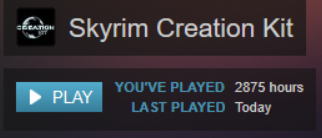
Featured Blog | This community-written post highlights the best of what the game industry has to offer. Read more like it on the Game Developer Blogs or learn how to Submit Your Own Blog Post
Beating Procrastination
A self-reflection on procrastination habits and possible solutions to break that vicious cycle and keep working on the things you love.

The burning sensation of guilt, anger and fear that fuels procrastination is a beast many of us wrestle with; a vile trash panda that keeps raiding your garbage no matter how many times you’ve thrown it down the stairs. It’s only natural for procrastination to kick in if you’re not a godly machine of sheer will and discipline. While discipline is a good thing to have, and far more reliable than motivation, it’s not something everyone can muster at all times. This piece is to help you out when times get rough, when life gets a bit too busy, or when your worst enemy is your own brain.
In the past three years, I spent most of my free hours building a fan-expansion for The Elder Scrolls V: Skyrim.

It’s not yet finished as I write this, but I know that one day it will be; not because I’m the most enthusiastic or disciplined person in the world, but because I’m aware of my occasional foolishness and know which buttons to press to get me back into the groove.
It’s not motivation that keeps me going. It’s determination.
(Also peer-pressure and impending eternal shame but don’t let that detract from the point I’m trying to make.)
When someone scours the internet in search of answers on how to battle procrastination, you’ll often find the same answers on different articles.
Here is a summary of the most common tips:
No “Zero Days”: Always do something productive every day. Doesn’t matter how big or small. Some progress is better than none at all.
Aim to work for at least 5 minutes. You’ll always spend more than 5 minutes.
Divide your work into a list of small chunks. Scratch off everything you’ve completed.
Schedule your days. Schedules aren’t chains; you should see them as the most ideal way you can spend a day.
Cut out distractions. Turn off social media and put on some headphones if need be.
Not all of these approaches might work for you; we’re all just sacks of meat, and we’re all wired differently. I tend to be surrounded with more distractions than I’d like, but some things simply are unavoidable. If you can’t cut out distractions, then it’s better to accept you’ll get distracted than to fall into the vicious cycle of getting frustrated by the fear of getting distracted — it’s very distracting.
Working on a project for a long period of time is draining. You constantly struggle with self-doubt, feelings of inadequacy, a lack of interest in your work — and many other negative feelings that impact the amount of time you actually spend working.
The benefit of these feelings is that you’re more often wondering why things aren’t getting done — but if you take the time to reflect, you’ll eventually start recognizing patterns.
I procrastinated the most when:
I didn’t feel excited or challenged by my work.
I lacked direction or awareness of what I was supposed to do
I felt like I was going to get distracted by something
I feared my work wasn’t good enough
I feared I wasn’t good enough
I believe that these are things that everyone will have to deal with at some point. There’s no magic fix to all of this; no milestone where you’re suddenly always capable of maintaining hyper-focus for indefinite amounts of time, or confidently face every challenge in your way. All people are fallible and you are allegedly a person.
The benefit of being a person is that we’re all capable of change; habits form through repetition and confidence is gained through experience. There’s a fine line you’ll need to walk between questioning the things you make, and your ability to do them: you’re probably far better than you think, but sometimes you just need to stop listening to yourself and get to work.
I found that the best way to actually start was to reflect on my work. If it’s something I haven’t finished, I see if it still holds up and tweak accordingly; if it’s something new, I’d plan it as simply as possible and tackle the easiest thing on the list. Planning and editing is a great starting point and gets you back into the zone fairly easily.
Some other things that worked well for me:
Make logging and planning a part of your workflow. The dopamine that comes with progress will keep you focused and seeing your work evolve is highly encouraging.
Don’t set deadlines; set goals: “I want to achieve this by Monday,” is considerably less scary than “I need to finish this by Monday.”
Embrace the KISS principle in your work. Overthinking and perfectionism kills productivity. Your perfect design will be never be on paper.
Share your work. Get feedback. Self-improvement can work wonders to feel invested and proud of your work.
Work with others. Peer pressure is great, and the benefits of collaboration is even better.
If you’re a workaholic, don’t forget to rest. Resting is as important as working and will do wonders for your productivity.

Peer pressure has been a major factor in writing this post. It’s likely it would never be finished if I hadn't publicly committed to it. Whether it be a genuine interest in sharing my experiences — or simply trying to escape the shame — it worked for me.
Excuses to delay your work are easy to come by, but so are reasons to get started. Accept that you’ll procrastinate from time to time and forgive yourself. Don’t wait for that special moment to get things done. Just do it.
You’ll love yourself for it.

Read more about:
Featured BlogsAbout the Author(s)
You May Also Like







.jpeg?width=700&auto=webp&quality=80&disable=upscale)








